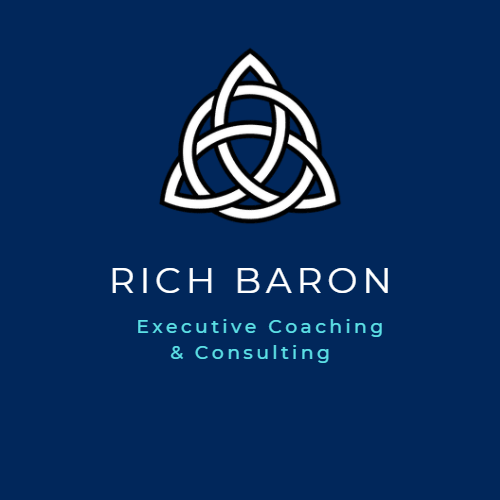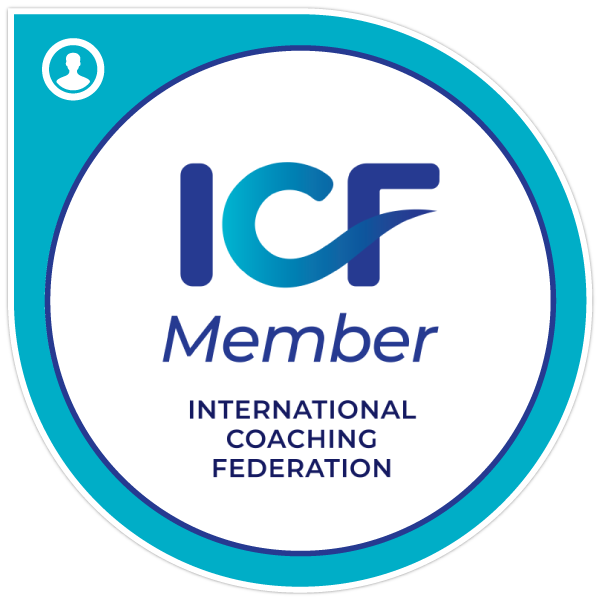Quit Hitting the Pause Button on Your Leadership Development
Rich Baron • May 23, 2025
Are You Ready to Face the Challenges of the Future
If the years since the pandemic are any indication of what we can expect in this ever-changing business world, leadership needs to be stronger than ever. With rapid changes in business worldwide, the leadership skills we need are changing. Strong, versatile leaders are needed to face the challenges we will inevitably see - leaders who can adapt, strategize, and motivate their teams through complex situations. However, studies show that organizations and leaders alike are far from prepared to combat these challenges.
What Do The Studies Show
Regarding rare leadership talent, in a study conducted by Kaiser Leadership Solutions, using a 360-degree instrument called the Leadership Versatility Index, they assessed over 24,000 senior managers from a variety of industries around the world. The results showed that less than 10% of the leaders in this study had the versatility and timing to be effective leaders. That means that more than 21,000 of the leaders studied do not have the versatility and timing to be truly effective in reading and responding to change with a wide repertoire of complementary skills and behaviors.
Despite the studies that show that leadership skills and development are lacking, there has been a disturbing trend in organizations cutting L&D budgets and individual leaders putting the brakes on their own development. Or worse yet, ignoring the importance of leadership development altogether.
A Short-Sighted Approach
This lack of investment in leadership development is a short-sighted approach that ultimately hurts both the individual leaders and the organization. Effective leadership is crucial for the success of any organization, as leaders set the tone for the rest of the team and drive the company toward its goals.
Additionally, in today's rapidly changing business landscape, it is more important than ever for leaders to be adaptable, agile, and able to navigate uncertainty and change. Investing in leadership development is key to ensuring that leaders have the skills and knowledge needed to thrive in this environment. Organizations must prioritize leadership development and allocate the necessary resources to support the growth and success of their leaders. By investing in leadership development, organizations can create a culture of continuous learning and improvement, drive innovation and growth, and ultimately, achieve sustainable success in the long run.
Without ongoing development and training, leaders can stagnate in their skills and become less effective in their roles. This can lead to decreased employee engagement, lower productivity, and ultimately, a negative impact on the bottom line.
Hitting the Pause Button
Simply put, businesses and leaders are falling behind in preparing for the upcoming business challenges they will certainly face. This fact was shown in another leadership development survey of almost 18,000 human resource professionals and business leaders from around the world. The findings showed that 83% believe it is critical to the success of their organizations to develop leaders at all levels. Despite this, less than 5% of businesses have integrated leadership development at all levels. According to the Global Leadership Forecast 2021, “fewer than half of leaders feel they are effective in leadership skills that will be most critical for future success. This means that strong, versatile leaders are not being developed and prepared for future business challenges.
As an executive coach, the most disturbing trend that I have seen in organizations, and individual leaders alike, is pumping the brakes on leadership development. Many of the excuses I have heard are that the L&D budget was cut, or we plan on revisiting leadership training next year, or my personal favorites, we are too busy to focus on that right now. With all the issues in poor employee retention, lack of leadership pipelines, poor talent selection, toxic bosses, and failing organizational culture (which is a direct result of poor leadership), it is no wonder you don't have the time. More than likely your time is now being spent chasing the tiger by the tail, putting out fires, and trying to keep your head above water.
So, a quick question, do you think your excuses will help solve the problems? Or perhaps employing the age-old wisdom that if we just ignore it, it will go away.
The trend of cutting L&D budgets has been a concern of employees globally. In February 2023, we featured an episode on our podcast, Mainline Executive Coaching ACT, entitled,
"Dear Employees, Your Budget Has Been Cut." It has been downloaded and listened to in over 90 countries and 1000 cities worldwide, and is still one of our top downloaded episodes with continued daily downloads to this date. This goes to show that this is not just a concern for organizations in the United States, but globally as well.
Quite frankly, this is an urgent situation that needs to change.
Versatility Will Be The Key
The need for leadership development is greater than ever. Over the past three years, business dynamics have shifted so dramatically, that the moment to maximize the benefits of strong and equipped leaders is now. Versatility in leadership skills is the master capability for leading in a VUCA world — that is, one characterized by volatility, uncertainty, complexity, and ambiguity.
Versatility is, "the ability to read and respond to change with a wide repertoire of complementary skills and behaviors." For instance, some circumstances call for leaders to take charge, force difficult issues, and make tough decisions, while others require leaders to enable, support, and include people. Similarly, organizations sometimes need leaders to focus on their future strategic direction and at other times to focus on day-to-day operations and execution.
Versatile leaders can seamlessly move between opposing behaviors. They can step up and make a call just as easily as they can bring people together to make group decisions. They can read the room and adjust their behavior accordingly, from asking questions and listening with an open mind to driving the team to achieve success. They can also envision change in big-picture terms and focus on the tactical details of implementing change. Versatile leaders can read the business, from playing out the chessboard five moves ahead to making the next move swiftly and with precision.
Focusing on the Future
It is time to stop pausing or ignoring leadership development altogether, or worse, simply putting someone in a leadership role because they are strong individual contributors in their jobs. The ripple effects of poor leadership have resulted in skyrocketing turnover rates, poor customer retention, disengaged employees, and high costs associated with replacing the employees who left. To be successful and competitive in the future, developing versatile, strong leaders is imperative. Organizations that value leadership development with a focus on building a strong leadership pipeline full of well-trained, versatile leaders will inevitably see greater innovation, stronger financial performance, highly engaged employees, and strong employee retention.
Going forward, organizations and individuals alike need to engage or reengage in leadership development. However, do not make the mistake of bringing back leadership training that the company invested in 10 years ago. Or worse yet, relying on someone in the organization who participated in those programs in the past to take on the task of leadership development today. The days of marathon seminars focused on a particular leadership skill are in the past. Quite frankly, they did not work then, and certainly will not work now.
A Training Evolution
Leadership training has evolved, and executive coaching is the sturdy bridge that connects individual leadership effectiveness with outstanding organizational performance. It can help organizations attract and retain exceptional leaders and help executive teams to improve their performance.
In addition, online coaching platforms that feature ongoing, bite-sized, dynamic, and hybrid training sessions with accompanying implementation tools coupled with one-on-one coaching have proved to be very effective. Intelligent Leadership Online Academy (ILOA) which was created during the pandemic by the world's top executive coach, John Mattone is one such platform that is trusted and respected by the top executives and technologists at some of the world's top companies.
Wrapping Up
Today's leaders need more proficiency than ever before. No one knows what our disruptive world will throw at leaders next. However, if the past three years are any indication of what lies ahead, organizations and individuals must be prepared to face those challenges. Those organizations with strong, versatile leaders who possess a wide and balanced repertoire of complementary competencies, skills, and behaviors, combined with the wisdom to know which one to use in a given situation, are likely to be most effective at leading their people, teams, and organizations through the turbulence. And we know that this meta-competency — versatility — can be learned, coached, and developed.
Reach out to me here
to find out more about executive coaching, and ILOA.
Or schedule time with me
here
for a discussion on how your future and the future of your organization can look.
About the Author
Rich Baron serves as the Chief Operating Officer and Director of the Global Coaching Project at John Mattone Global, where he also holds the title of Master Certified Intelligent Leadership Executive Coach. With over 30 years of rich experience in cultural transformation, operational leadership, executive roles, and coaching leaders at every level—from emerging talents to seasoned CEOs—Rich has a demonstrated track record of success.
Rich co-hosts "Mainline Executive Coaching ACT," a podcast that is recognized by Feedspot as the leading Executive Coaching Podcast worldwide. The podcast's acclaim is based on an evaluation of numerous factors, including web traffic, social media followers, and timeliness.

The First World War, occurring from 1914 to 1918, brought unprecedented destruction and violence. The impact of the First World War, in particular, forever transformed the nature of war. This conflict witnessed the deliberate targeting of civilians, the widespread use of chemical weapons, and the introduction of mechanized warfare on a large scale. The death toll reached a staggering 22 million people, with some accounts putting the toll closer to 37 million. However, amidst the chaos and brutality of the First World War, a brief and remarkable moment of peace unfolded on Christmas Day in 1914. It Will Be Over by Christmas Many of the 60 million soldiers sent to fight in the First World War were told that the war would be over by Christmas—a promise that turned out to be yet another falsehood in a conflict plagued with deception and misinformation. After war was declared in July 1914, it became clear by Christmas of that year that there was no end in sight. The Western Front was dotted with trenches, where millions of soldiers were packed together, enduring freezing conditions. Many of these soldiers were astonishingly close to their enemies, with the British and German trenches sometimes separated by a mere 30 meters. According to Daniel Coyle in his best-selling book “The Culture Code”, soldiers on both sides, because of proximity to each other, started noticing shared patterns of behavior and routines of cooking, re-supply, and troop rotations. Deepening the connection was the realization that both sides were enduring the same terror and stress of harsh conditions. On the late hours of Christmas Eve, German troops started opening gifts that they had received from home, including Christmas trees adorned with candles. The soldiers lit their lanterns and placed them along the edges of their trenches, creating a warm and festive atmosphere. As the candles flickered, the sound of carol singing resonated through the air. A Personal Account Bruce Bairnsfather, a British machine gunner who would later become a well-known cartoonist, vividly described the scene in his memoirs. Like his fellow infantrymen from the 1st Battalion of the Royal Warwickshire Regiment, Bairnsfather spent Christmas Eve shivering in the muddy trenches, desperately trying to keep warm. Having fought against the Germans for the past few months, he found himself in the Bois de Ploegsteert region of Belgium. In this unforgiving environment, Bairnsfather, cramped in a trench only three feet deep and three feet wide, faced constant sleeplessness and fear. His days and nights were filled with the repetitive cycle of anxiety, surviving on stale biscuits and cigarettes too damp to light. At about 10 p.m., Bairnsfather noticed a noise. “I listened,” he recalled. The Germans were singing carols, as it was Christmas Eve. The British soldiers in the trenches joined in by singing back. Amid this peaceful moment, a surprising occurrence unfolded. Bairnsfather and his comrades heard a bewildered shouting from the German side, causing them to pause and listen intently. The voice belonged to an enemy soldier who spoke English with a distinct German accent, calling out, "Come over here." In a remarkable turn of events, the British and French troops, inspired by the Germans, also participated in the Christmas truce. Fear and suspicion were set aside as soldiers began to exchange greetings and well-wishes between the trenches. Offers for a temporary ceasefire were communicated and accepted. With the dawn of Christmas morning, soldiers cautiously stepped out into no man's land. They greeted one another and engaged in an awe-inspiring display of humanity. Messages and gifts were shared as soldiers from opposing sides momentarily set aside their enmity. In some areas, caps and jackets were repurposed as goalposts, leading to impromptu and joyful football matches. It is even said that the Germans emerged victorious in one of these games with a final score of 3-2. Another British soldier, named John Ferguson, recalled it this way: “Here we were laughing and chatting to men whom only a few hours before we were trying to kill!” The temporary cessation of fighting continued in certain areas until the arrival of the New Year, but ultimately, the pause proved to be brief and the peace was short-lived. Although there were several other instances of similar truces during the war, none were as widespread or significant as the Christmas truce of 1914. Disapproval from Senior Leaders As expected, certain high-ranking officers on both sides viewed the Christmas Truce with disapproval. They issued orders explicitly forbidding any association with the enemy and warned of potential punishments for those who disobeyed, even execution for cowardice by firing squad for those who attempted to start another truce. However, the soldiers, who were already weary from the war (unaware of the years of continued fighting ahead), chose to take matters into their own hands. They defied the orders and acted independently to establish moments of peace, albeit temporary, amidst the turmoil of war. In an alternate account, it is reported that a German soldier named Adolf Hitler reprimanded his comrades during the Christmas Truce, expressing his disapproval by stating, "Such a thing should not happen in wartime. Have you no German sense of honor left?" Hitler, who was 25 years old at the time, conveyed his disdain for the temporary ceasefire. What Can We Learn as Leaders If enemies on the battle lines can create a culture of safety, respect, and belonging even during war, it suggests that similar conditions can be replicated within organizations. And indeed, there are ways to achieve this. According to Coyle, organizations that foster a strong sense of belonging can address the following questions to ensure a positive response from employees: 1. Are we connected? - Encourage open communication and collaboration among team members. - Foster a sense of unity and shared purpose. 2. Do we share a future? - Clearly, and often, communicate the organization's vision, mission, and goals. - Involve employees in decision-making processes to create a sense of ownership and shared commitment. 3. Are we safe? - Promote a culture of psychological safety where employees completely trust that the organization is a safe place to give 100% while expressing their opinions and taking risks. - Establish policies and practices that prioritize employee well-being and physical safety. To ensure a resounding "YES" to these questions, it is crucial to clearly and consistently communicate the organization's vision, mission, and goals. This can be achieved by: Communicate the purpose: An effective approach to communicate your organization's purpose is by using concise messaging throughout. Avoid using overly complex statements that potential employees may struggle to understand or feel apprehensive about living up to. Articulating the vision: Communicate the long-term aspirations and purpose of the organization. This overarching vision should inspire and provide a sense of direction for all employees. And that they are a crucial part of achieving the vision. Define the mission: Clearly define the organization's mission statement, which outlines its core purpose, main activities, and the value it delivers to its stakeholders. Regularly reinforce this mission to remind employees of the organization's primary focus. My Key Takeaways The Christmas Truce offers valuable lessons about leadership and culture that can be applied in various contexts. Although this event took place over 100 years ago, the lessons we must learn from those brave soldiers are still relevant today. So here are a few of my thoughts and key takeaways: 1. Leaders Set the Tone: The temporary ceasefire during the Christmas Truce was driven by individual soldiers who took the initiative to establish peace. This highlights the importance of leaders setting the right tone and creating an environment that encourages positive actions and behaviors. 2. Humanize the "Enemy": The soldiers involved in the truce showed empathy and compassion towards their supposed enemies. This serves as a powerful reminder that seeing the humanity in others, even in challenging circumstances, can foster understanding and connection. 3. Facilitate Connection and Communication: The Christmas Truce exemplified the power of connection and communication across divides. Leaders should create opportunities for open dialogue, collaboration, and relationship building, fostering a sense of community and common purpose. 4. Encourage Empathy and Respect: The truce demonstrated the significance of empathy and respect in promoting peaceful interactions. Leaders can cultivate these qualities by emphasizing the importance of understanding different perspectives and treating others with dignity and respect. 5. Boldly Challenge Norms: The soldiers who participated in the truce defied the established orders and norms, highlighting the potential for positive change when individuals challenge the status quo. Leaders should encourage everyone in their organizations to think differently and think big. Wrapping Up Even in today's world, the lessons from the Christmas Truce of 1914 remain pertinent. Individuals, regardless of their political beliefs and ideologies, will unite with their families to celebrate the birth of Jesus Christ, who symbolizes peace and salvation. It is a day when we commit ourselves to acts of generosity and spreading kindness to those around us. Afterward, instead of going back to our organizational trenches and shooting at each other verbally from within our siloed walls, we should stay in the “no man’s land” of compromise and conciliation and continue to find solutions to common problems. Like the soldiers in the Christmas Truce, we should make the spirit of goodwill at Christmas last more than one day. By consistently prioritizing and nurturing these elements year-round, organizations can create a culture that fosters a strong sense of belonging, ultimately leading to increased engagement, productivity, and overall organizational success. I wish you all a Merry Christmas and Happy Holidays. Thank you for your continued support and I wish you all the best for the coming new year. About the Author Rich Baron is the Chief Operating Officer and Director of Global Coaching Projects at John Mattone Global (JMG) and a Master Certified Intelligent Leadership® Executive Coach. He partners with C-level leaders and high-potential executives around the world to strengthen trust, elevate culture, and drive sustainable transformation. Rich leads large-scale coaching and cultural initiatives across multiple regions and industries, and serves as a strategic bridge between executive teams, HR, and global coaching networks. He is also the co-host of the Mainline Executive Coaching ACT podcast, recognized as one of the top executive coaching podcasts globally, where he explores the real-world challenges and opportunities facing today’s leaders. Through his work, Rich is dedicated to CHANGING THE WORLD One Leader, One Organization at a Time® by helping leaders move beyond performance and build the inner architecture required to become world-class executives.



